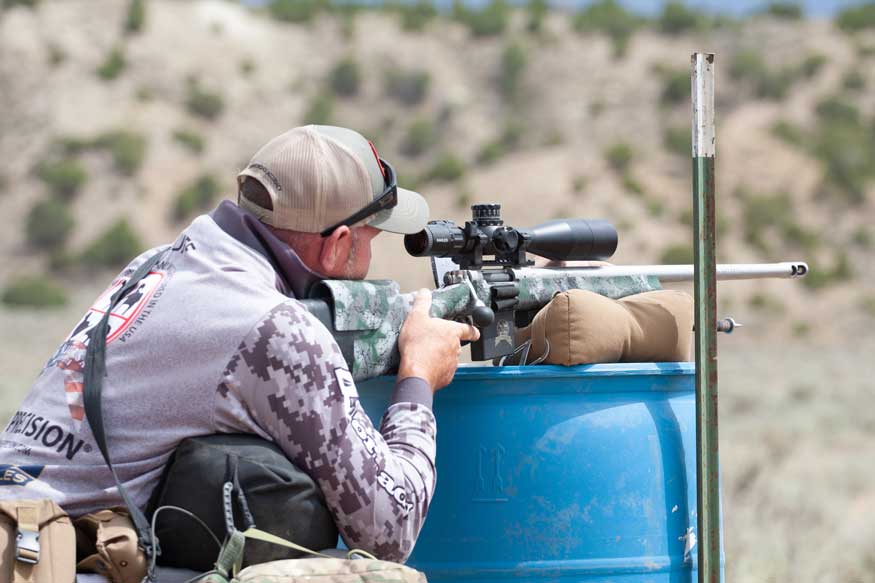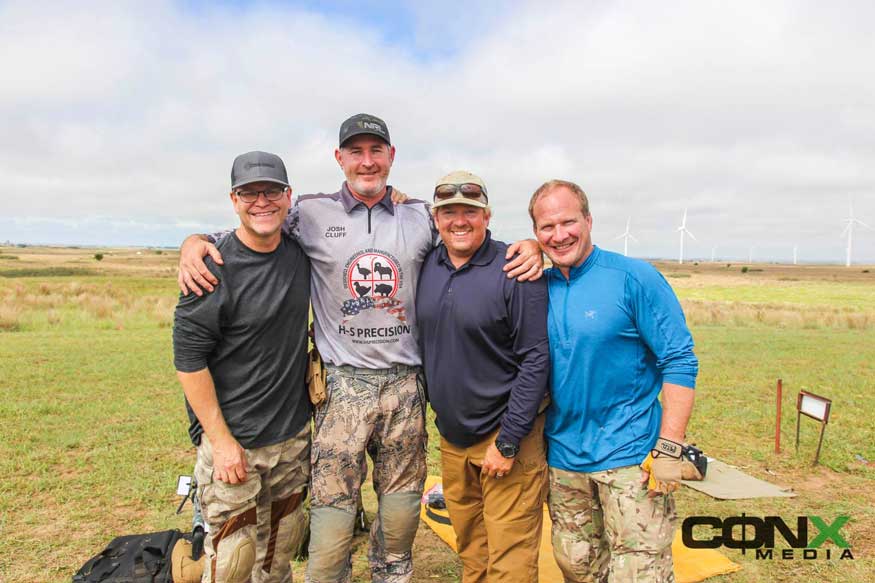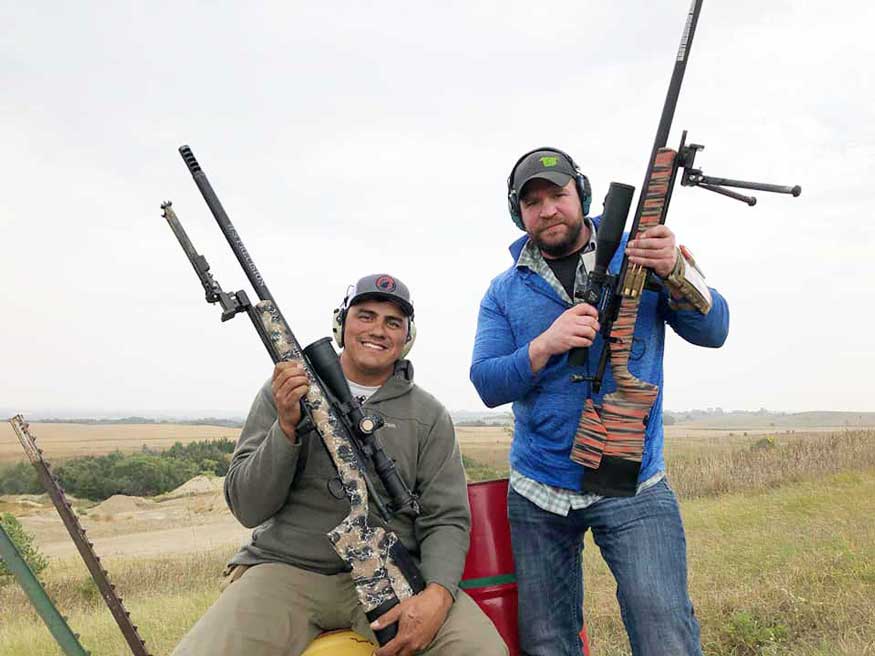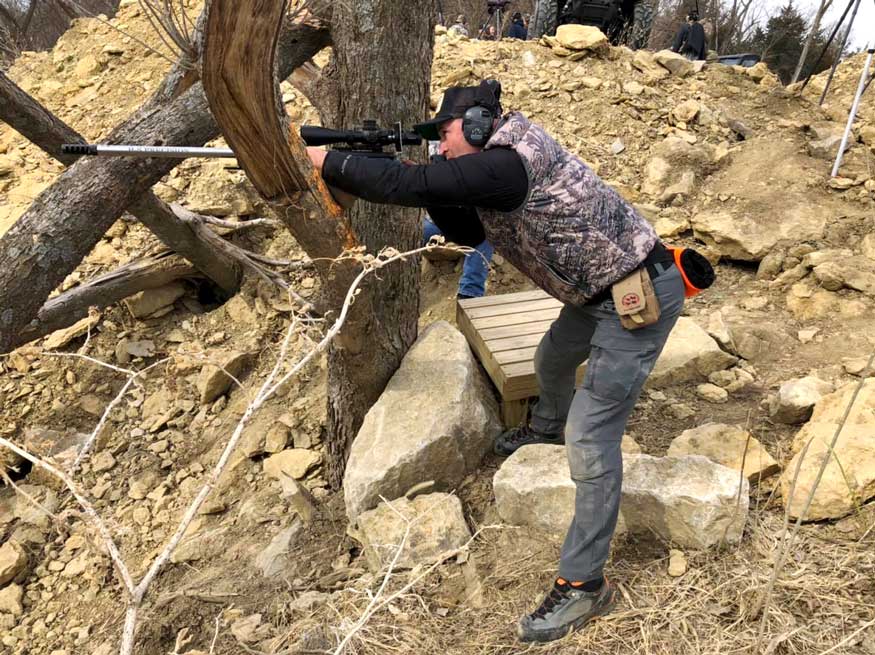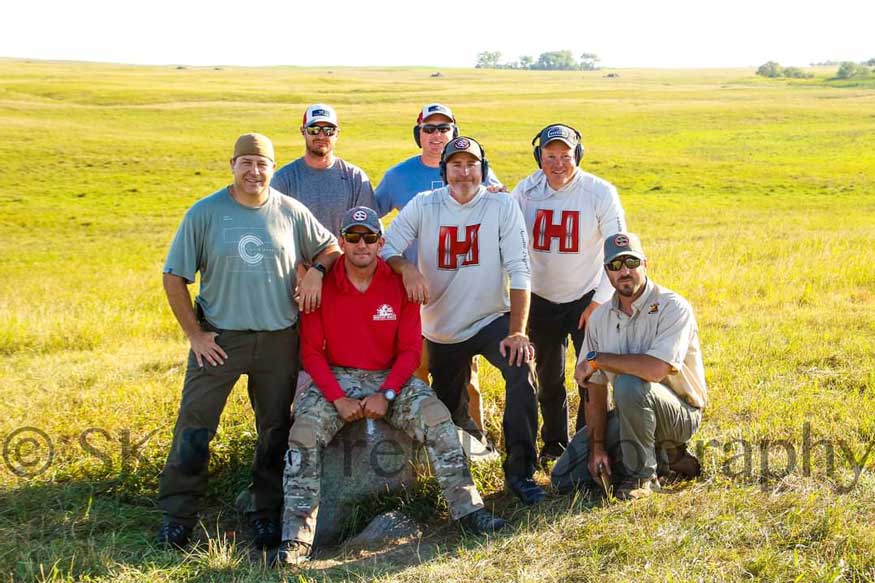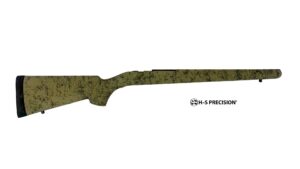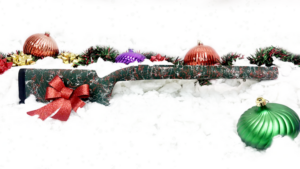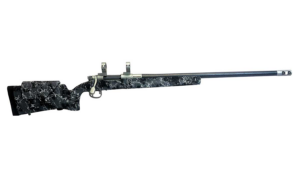It can be intimidating walking into something new – getting out of your comfort zone. But if there’s an opportunity to shoot more outside of your typical hunting season, wouldn’t you want to try it out?
Long range competition venues are a great way to enhance your shooting skills and learn how to become a better shooter.
When Josh began shooting competitively in 2017, it was an entirely new experience out of his comfort zone. He showed up at his first match not knowing much about the venue but was eager to learn. Little did he know how much he needed to learn.
“I had one of our shop rifles, a good scope, and some factory ammo. But, I didn’t have a ballistic solution, a kestrel, a dope card, or any shooting bags. The first stage was about 400 yards; I was shooting off the edge of a barbed wire fence and thinking, ‘what the heck did I get myself into’,” remembers Josh.
After that stage, participants in his squad started helping him out, loaning him gear, giving advice, and helping with wind calls.
“Stepping back from that experience, I saw such a strong community and I wanted our company to be a part of that. It wasn’t so much about the competition but the comradery present between the shooters.”
It is a competition when registering for venues such as the NRL or NRL Hunter, or PRS. However, the competition is secondary to the relationships and enjoyment of long range shooting. Being a part of these venues will help you learn about your gear and set up, how to get into proper shooting positions for a stable platform, and a ton about ballistics and the varieties of shooting scenarios.
WHAT DO YOU NEED?
Your rifle and ammo. (Binos and range finder if you select an NRL Hunter match). Don’t worry about the ballistic solvers, bags, supports, or tripods — you’ll gain the gear overtime once you learn what works for you and your style. You will have the opportunity to talk to experienced shooters, learn some of their best tips, and many will often loan you their gear when needed.

HOW MUCH IS IT?
The prices of matches will vary depending on venue and match. In the National Rifle League, you will have to be a member if you want to qualify for the championships (a one-time annual fee).
Match fees will range from $250-300+ paid when you register. They tend to sell out fast – so prepare ahead of time and be ready to go when registration opens. There are typically 100-200+ people at a match depending on the time of year and location.
Lodging and dining are separate from the match itself. However, the venue will have suggestions that are within driving distance of the match location. Many shooters will opt to camp out, as well.
A TYPICAL MATCH
Most matches are two days including a registration day. Squads are typically set by match directors by random assignment or by the order you register, however – you can sometimes pick who you are shooting with when you register online. At most matches, there will be 10 shooters per squad that will rotate throughout the stages together.
In the NRL race gun series, there will be 10-12 stages timed at 2 minutes per stage. You will have 1-5 targets to hit from 1-5 positions within that 2 minute time. On the second day, it’s common for that 2-minute time to drop to 90 seconds but each match is different.
In the NRL Hunter series, all the stages are blind. You don’t have the location of the target, distance or the position you’re shooting from – emulating more of a true hunting scenario. These stage times are typically 4 minutes rather than the race gun series’ 2 minutes.
HOW TO PREPARE
The first two years of competing, Josh went to the matches to learn the set up, the pace, and gain experience from other shooters. Over time, regular practice had become a part of his schedule, just like any other sport. He will generally only shoot prone while verifying dope and truing ballistics. The rest of the time is spent practicing of some sort of barricade or unique shooting position.
With the shortage of ammo and powder, dry fire practice has been a big adjustment and a competitive advantage to Josh’s typical routine. The ocular system applied to his lens allows him the ability to set up a stage scenario and practice year-round, no matter the weather conditions.
In addition to shooting and truing practice, getting in shape has been a big priority. Running from position to position, stage to stage, all while controlling your breath before shooting can be a lot of cardio. Lifting weights, adding a daily cardio, and stretching regularly will help in your competitive shooting success.

Have questions about shooting your first match or getting started in competition shooting? Here are some resources to get you started.


